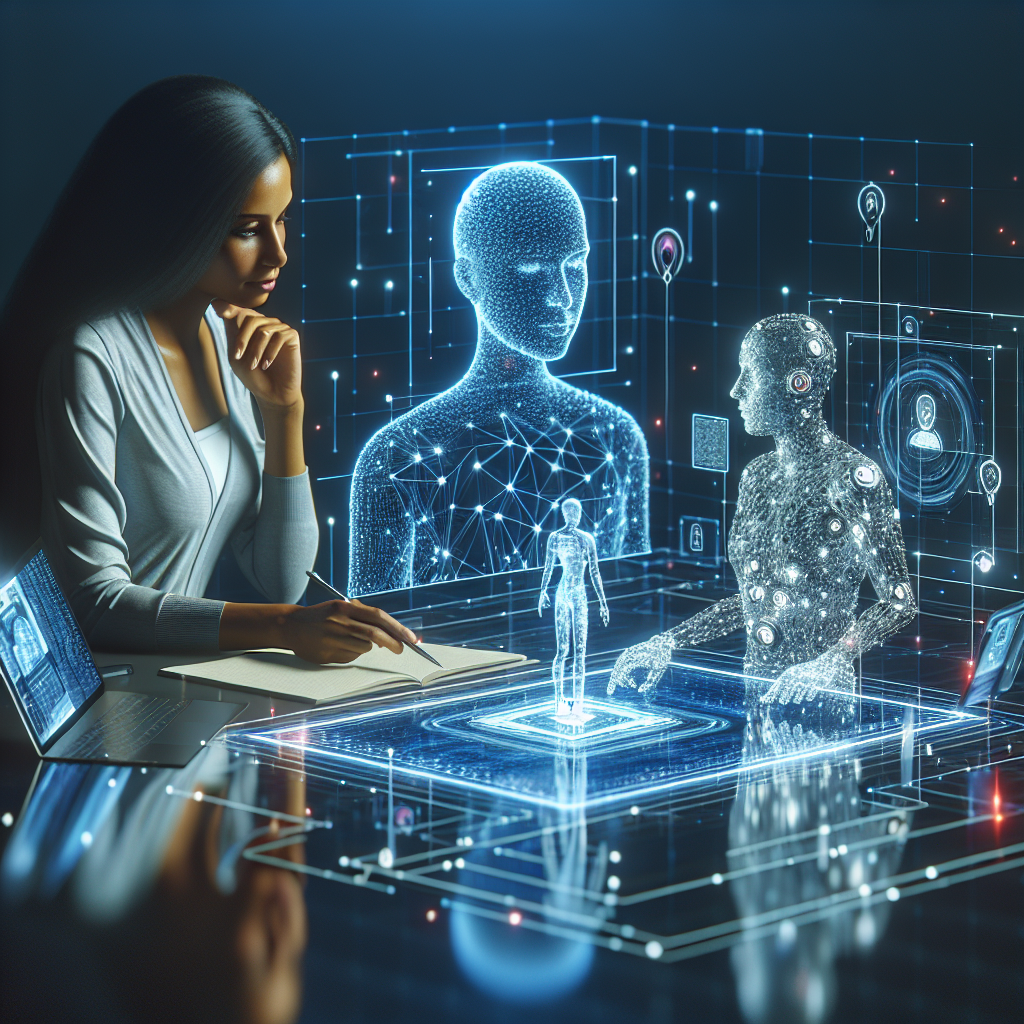The Future of Work: How AI Platforms are Changing Employment
In recent years, advancements in artificial intelligence (AI) technology have been transforming the way we work. AI platforms are revolutionizing various industries, from healthcare to finance, by automating tasks, improving efficiency, and streamlining processes. As a result, the nature of work is evolving, and the future of employment is being shaped by AI platforms.
AI platforms are computer systems that are capable of performing tasks that typically require human intelligence, such as speech recognition, decision-making, and problem-solving. These platforms use machine learning algorithms to analyze data, identify patterns, and make predictions, enabling them to perform complex tasks with speed and accuracy.
One of the key ways in which AI platforms are changing employment is by automating routine tasks. Many jobs involve repetitive and mundane tasks that can be time-consuming and error-prone when performed by humans. AI platforms can take over these tasks, freeing up employees to focus on more strategic and creative aspects of their work.
For example, in the healthcare industry, AI platforms are being used to analyze medical images, diagnose diseases, and recommend treatment options. This has the potential to improve patient outcomes, reduce healthcare costs, and alleviate the burden on healthcare professionals.
In the finance industry, AI platforms are being used to analyze financial data, detect fraud, and make investment decisions. This can help financial institutions make more informed decisions, reduce the risk of fraud, and improve the efficiency of their operations.
Another way in which AI platforms are changing employment is by enhancing productivity and efficiency. AI platforms can process vast amounts of data quickly and accurately, enabling organizations to make better decisions and take action more effectively. This can lead to increased productivity, improved customer satisfaction, and higher profitability.
For example, in the retail industry, AI platforms are being used to analyze customer data, predict purchasing behavior, and personalize marketing campaigns. This can help retailers target the right customers with the right products at the right time, leading to increased sales and customer loyalty.
In the transportation industry, AI platforms are being used to optimize routes, reduce fuel consumption, and improve safety. This can help transportation companies reduce costs, improve efficiency, and enhance the overall customer experience.
Despite the many benefits of AI platforms, there are also concerns about the impact they may have on employment. Some fear that AI platforms may replace human workers, leading to job losses and economic instability. However, many experts believe that AI platforms will not necessarily eliminate jobs but rather transform them.
AI platforms have the potential to create new job opportunities by enabling organizations to innovate, grow, and compete more effectively. For example, AI platforms can help organizations develop new products and services, enter new markets, and improve customer experiences. This can lead to the creation of new roles and responsibilities that require human intelligence, creativity, and critical thinking.
In addition, AI platforms can augment human capabilities by providing employees with real-time insights, recommendations, and support. This can help employees make better decisions, solve problems more effectively, and collaborate more efficiently. As a result, AI platforms can enhance the skills and capabilities of employees, enabling them to perform at a higher level and add more value to their organizations.
Overall, the future of work is being shaped by AI platforms that are changing the way we work, collaborate, and innovate. While there are concerns about the impact of AI on employment, many experts believe that AI platforms have the potential to create new opportunities, enhance productivity, and improve the overall quality of work.
FAQs
Q: Will AI platforms eliminate jobs?
A: While AI platforms have the potential to automate routine tasks, many experts believe that they will not necessarily eliminate jobs but rather transform them. AI platforms can create new job opportunities by enabling organizations to innovate, grow, and compete more effectively.
Q: How can AI platforms enhance productivity?
A: AI platforms can enhance productivity by processing vast amounts of data quickly and accurately, enabling organizations to make better decisions and take action more effectively. This can lead to increased productivity, improved customer satisfaction, and higher profitability.
Q: How can AI platforms augment human capabilities?
A: AI platforms can augment human capabilities by providing employees with real-time insights, recommendations, and support. This can help employees make better decisions, solve problems more effectively, and collaborate more efficiently, enhancing their skills and capabilities.
Q: What are some examples of industries that are being transformed by AI platforms?
A: Industries such as healthcare, finance, retail, and transportation are being transformed by AI platforms. In healthcare, AI platforms are being used to analyze medical images, diagnose diseases, and recommend treatment options. In finance, AI platforms are being used to analyze financial data, detect fraud, and make investment decisions. In retail, AI platforms are being used to analyze customer data, predict purchasing behavior, and personalize marketing campaigns. In transportation, AI platforms are being used to optimize routes, reduce fuel consumption, and improve safety.
Q: What are some potential benefits of AI platforms in the workplace?
A: Some potential benefits of AI platforms in the workplace include increased productivity, improved efficiency, enhanced decision-making, and better customer experiences. AI platforms can automate routine tasks, provide real-time insights, and augment human capabilities, enabling organizations to innovate, grow, and compete more effectively.

